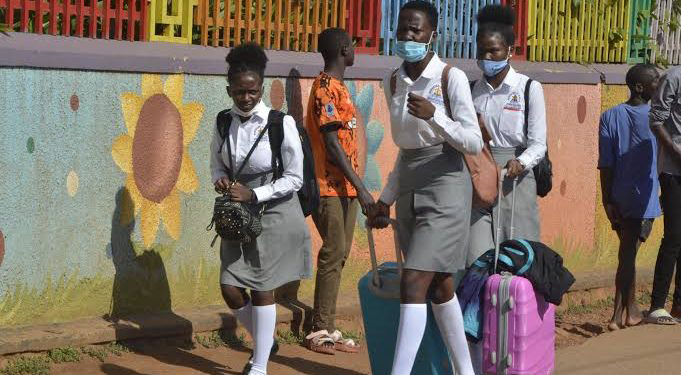The common talk that cuts across any group of parents and caretakers, however small, is the plight they are facing in shouldering the cost of education for their children. Education is a necessity that has long become the preserve of the ‘rich’.
According to the Ministry of Education and Sports, 40% and 66% of primary and secondary schools in Uganda, respectively, are privately owned.
This means that private schools dominate Uganda’s education sector. In the face of rampant inflation that now stands at 9.2%, coupled with high prices of food, having increased by 27.4% compared to last February 2022 (UBOS CPI annual report to February 2023), schools have had no option but to charge exorbitant fees to meet the high cost of operation.
On average, pre-primary and primary schools charge between UGX 900,000 and UGX1.5m while their secondary school counterparts charge between UGX 2 million and UGX 5M per term (excluding personal requirements for children), which is a very tough call for majority of parents in Uganda.
At the onset of January this year, the government released school fees caps determined for all education levels but, like previous directives, this one has suffered the ignominy of being ignored by schools, which have gone ahead to hike school fees over and above the ministry cap.
No wonder, people are hot under the collar everywhere, and the unafforadable school demands have dire effects on those that raise their expectations in words without taking action. However, the outstanding question is: How best should parents go about the responsibility of shouldering the cost of their children’s education?
Whereas Article 30 of the 1995 Constitution of the Republic of Uganda emphasises that education as a right for all persons and specifically charges the state with the responsibility for its provision, with the increasing cost of education, including that of school requirements, education is becoming unaffordable for the poor. This calls for men and women of this nation to join hands with the government and work towards providing quality education in order to transform the economy, as envisaged in the National Development Plan III.
Recently, UNEB released PLE, UCE and UACE results and one sad reality that was revealed is that the dropout rate for students all levels is rising very fast and needs to be addressed.
For example, of the 1.888847 students that enrolled in Primary Oe in 2016, only 832,654 managed to register fro PLE exams. This shows that in this cohort, about more than one million children dropped out. This fact cannot be discussed without delving into the repercussions of the high cost of education.
It is evident that Uganda has a very large young population, with about 78% of its total population being below the age of 30. It is a tragedy to have all these young and energetic people lacking education and having no or only limited skills to contribute positively to the economic growth of the country. Evidence from other countries, especially in Asia, whose human capital index is high (88% for Singapore), shows that an educated population has great potential to spur economic growth.
If Uganda is to harness the population dividend, it must undertake deliberate efforts to make quality education accessible for every child of school-going age. If not, we are likely to face increased inequalities in terms of education which, consequently, will increase the incidence of poverty in the country.
Amidst the existing financial constraints, the provision of subsidised loans by the government to parents would be a viable option to address the school fees burden on parents. Yes, I am aware of UPE and USE, but what about the provision of scholastic materials and other essential needs, especially for girls? Education should not be left to the market forces of demand and supply in its entirety. Otherwise, Uganda will fail to leverage its human capital potential.
Mr. Akambamu Abel is a third-year student of Economics at Makerere University.








